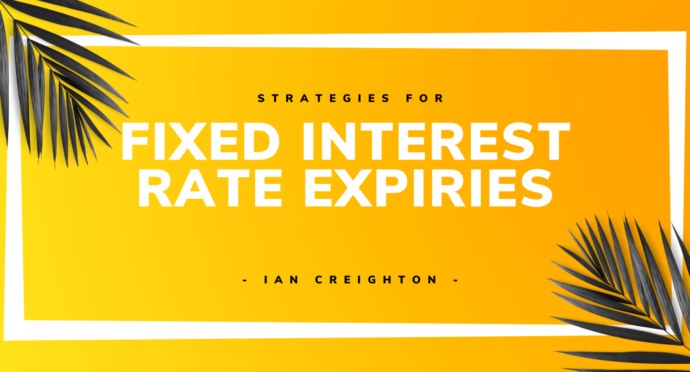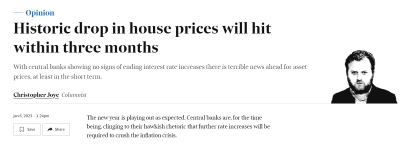Post by Ian Creighton – Mortgage Broker at Long Property
During Covid-19 many borrowers took advantage of historically low interest rates and locked in some great fixed rates for their loans. Traditionally fixed rate loans have only made up 10-15% of total lending, however over 2020-2022 this number quadrupled to c 40%. The vast majority of these loans were taken out at rates well below 3% and in some cases even below 2%.
This means that for the time being many people have been shielded from RBA’s aggressive rate increases. But we know from our daily conversations with borrowers that there is some concern around the large increase in repayments that are inevitable when their cheap fixed rates end. For certain borrowers repayments increase by over 40%.
Here are our tips on how to plan and prepare for the rate increases.
- Put a negotiation date in your diary. We recommend contacting your bank/broker 2 months prior to your fixed rate expiring. This gives you enough time to negotiate the best variable rate that you can. Getting ahead of the curve will mean that when you do ultimately rollover you rollover to the best rate the bank will offer you.
- Consider switching banks. What if you call the bank and they do not offer you their best rates or the rates ‘new to bank’ customers are being offered? Then it pays to shop around. Discounting by banks is at an all time high and they are competing aggressively on interest rate. Many are also offering serious financial incentives to win your business – $4,000 cash is not uncommon with some banks even offering up to $6,000. For many borrowers that could be the equivalent of having 1-2 months of your mortgage being paid for you.
- If you have found the best rate possible and the repayments still look scary to you then you could consider extending your mortgage back out to 30 years. Extending your loan is likely to reduce your monthly repayment commitment. This strategy is going to be most effective for those who have had their mortgage for 3+ years. The downside of this strategy is that unless an offset account is used to deposit the surplus cashflow then it will take longer to pay off your homeloan and you will pay more interest over the life of the loan. However it can create a bit of financial breathing space and with an offset account it’s possible to eliminate any added interest.
- Consider switching to interest only. This can significantly reduce your monthly repayments. We would recommend doing this on investment lending initially and diverting the savings into your homeloan offset account. Please note though this is likely to require a whole new lending assessment and not everyone will be eligible.
- Start saving now! If you are benefiting from a low fixed rate now and you worry about the sharp rise in repayments I would encourage you to begin living as if your rates have already increased. Take the difference between what you are paying now and what you will be paying next year and put it in your offset account (or a savings account if you don’t have an offset, but we always recommend having at least one offset account). This is going to help create a financial buffer and reduce some of the pressure when your rates increase.
- Seek out a pay rise or a new employer. The unemployment rate is sitting at 3.4% the lowest it has been for nearly 50 years. Employers know how hard it is to get staff and many are willing to pay extra to keep a good employee. It may mean some uncomfortable conversations but ultimately there has never been a better time to negotiate.
- Don’t panic, it can be easy to get caught up in the negative sentiment but interest rates can fall just as quickly as they have risen. Many economists are predicting interest rates to drop by late 2023 – early 2024. It is unlikely we will see the historically low rates that we did during Covid but even a small easing of 50 basis points will make a material difference to repayments. Stage 4 tax cuts are also set to be introduced in 2024. This will make a positive impact in take home pay for many. We recommend using this calculator to see how your take home pay will be affected.
- Lastly, if you think you really are going to be in trouble or you risk missing repayments then contact your bank as early as possible. There are a number of different ways a bank can support you such as pausing repayments or temporarily reducing repayments.
Ultimately there is nothing you can do to alter the economic environment around you. It is about being prepared and making the best decisions you can with the information you have at hand. As always we suggest discussing your situation with an experienced mortgage broker before making any decisions.




